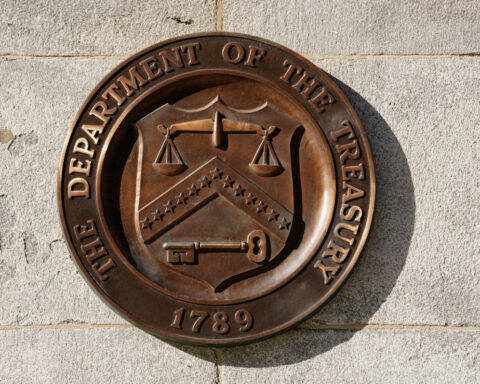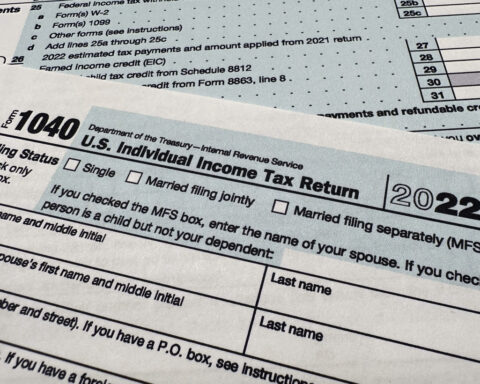By Robert Harvey and Natalie Grover
LONDON (Reuters) - Global physical crude oil markets are weakening because of soft refinery demand and ample supply, traders and analysts told Reuters, in a move that could spell further weakness for benchmark crude futures.
The weakness indicates high interest rates and inflation are depressing consumer and industrial demand, especially in Europe, at a time when supply is rising from non-OPEC producers such as the United States. This could bolster arguments for OPEC+ to maintain production curbs at a June 1 meeting.
Demand from refiners is soft, even though their crude intake capacity has increased with the end of springtime maintenance.
“Rising refinery capacity has not been met by an expected rise in demand,” Saxo Bank analyst Ole Hansen said.
“Consumers are feeling the pressure from high interest rates and inflation, as well as trade wars and a challenging geopolitical environment.”
The weakness is exhibited particularly clearly in the North Sea, which produces crude grades that alongside U.S. WTI Midland crude underpin the Brent futures benchmark and help price two thirds of global oil.
The price differential of North Sea Forties crude fell on May 14 to a discount of 97 cents to dated Brent, its widest since January 2023, according to data from S&P Global Commodity Insights, known as Platts.
Similarly, Platts on May 13 assessed WTI Midland cargoes pricing in Northwest Europe at dated Brent minus 69 cents, the lowest assessment since WTI joined the North Sea grades that underpin the Brent benchmark last May.
"It is seemingly a relatively benign period for demand," said Sparta Commodities analyst Neil Crosby, who added that ample crude inventories could be delaying buying. "For now, physical pricing is under pressure."
Besides weak refining demand, supply of light, low-sulphur crudes competing with the North Sea such as West Africa or the United States has been rising globally.
Ample supply is also evident in the structure of short-term Brent swaps - when crude for prompt delivery trades at a $1.07 per barrel discount to the July contract as opposed a $1.64 premium a month ago.
The current structure is known as contango and indicates abundant prompt supplies and weak demand. The opposite structure is known as backwardation.
WEAKNESS ACROSS THE BOARD
In the United States, physical markets have also softened as U.S. refinery processing rates have stayed below regular seasonal levels despite the end of a maintenance season.
Prices for Louisiana Light Sweet crude fell to a three-week low of $2.33 per barrel over WTI on May 16, according to LSEG data.
The four-week average for U.S. refinery utilization was at 88.7% for the week ended May 10, down from 91.2% over the same period a year ago, according to the U.S. Energy Information Administration.
At the same time, the four-week averages for both U.S. gasoline and distillate product-supplied, a proxy for demand, were 4-5% below 2023 levels.
Refinery profit margins around the world have weakened partly because of a global slump in diesel values, a key refined product for the industrial and transport sectors alike.
PVM analyst Tamas Varga said lower margins were a clear sign that refiners were producing too much fuel amid lax consumer and industrial demand.
Lower profit margins have already prompted Asian refiners to process less crude oil in May, with others considering more cuts in coming months, further reducing crude demand.
Asia’s oil refining curtailments "signals a weak oil market," said U.S. oil analyst Paul Sankey.
"The last leg of the refining balance essentially is Asia. It's the first thing that shuts down" when markets are oversupplied, he said, adding that he expects OPEC to roll over its voluntary cuts at the June 1 meeting.
Weaker Asian refining demand has caused a drop-off in Middle East crude prices with Benchmark Dubai touching a near two-month low of $81.24 a barrel on May 8.
It has also left a glut of Nigerian supply, forcing sellers to cut prices for May cargoes to clear an overhang.
Nigerian Qua Iboe crude fell to $2.10 above dated Brent on May 15, the lowest premium since February according to LSEG data.
An Asian crude buyer, who asked not to be named, said he was holding off purchases of West African and WTI crude until values drop further.
"They need to find outlets. (There is) too much oil," the buyer said.
(Reporting by Robert Harvey and Natalie Grover, additional reporting by Gary McWilliams and Liz Hampton in Houston, and Florence Tan in Singapore; Editing by Alex Lawler, Dmitry Zhdannikov and Susan Fenton)

 Trump has begun another trade war. Here's a timeline of how we got here
Trump has begun another trade war. Here's a timeline of how we got here
 Canada's leader laments lost friendship with US in town that sheltered stranded Americans after 9/11
Canada's leader laments lost friendship with US in town that sheltered stranded Americans after 9/11
 Chinese EV giant BYD's fourth-quarter profit leaps 73%
Chinese EV giant BYD's fourth-quarter profit leaps 73%
 You're an American in another land? Prepare to talk about the why and how of Trump 2.0
You're an American in another land? Prepare to talk about the why and how of Trump 2.0
 Chalk talk: Star power, top teams and No. 5 seeds headline the women's March Madness Sweet 16
Chalk talk: Star power, top teams and No. 5 seeds headline the women's March Madness Sweet 16
 Purdue returns to Sweet 16 with 76-62 win over McNeese in March Madness
Purdue returns to Sweet 16 with 76-62 win over McNeese in March Madness








